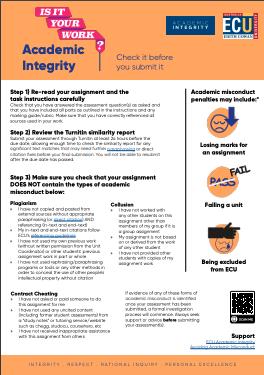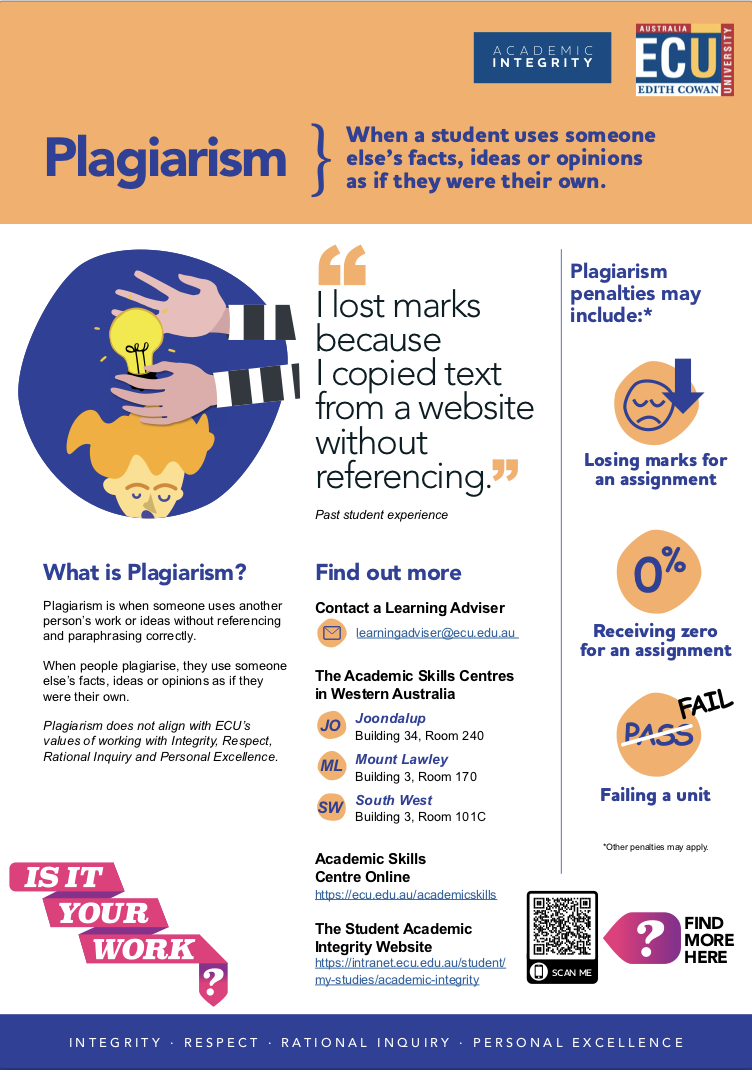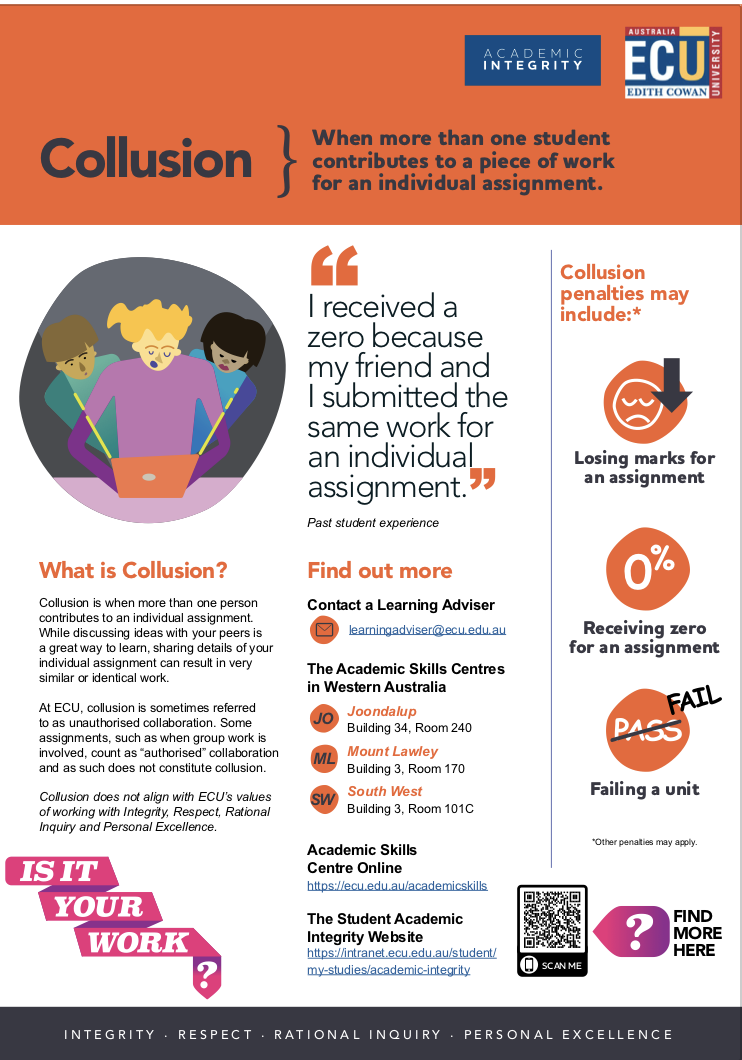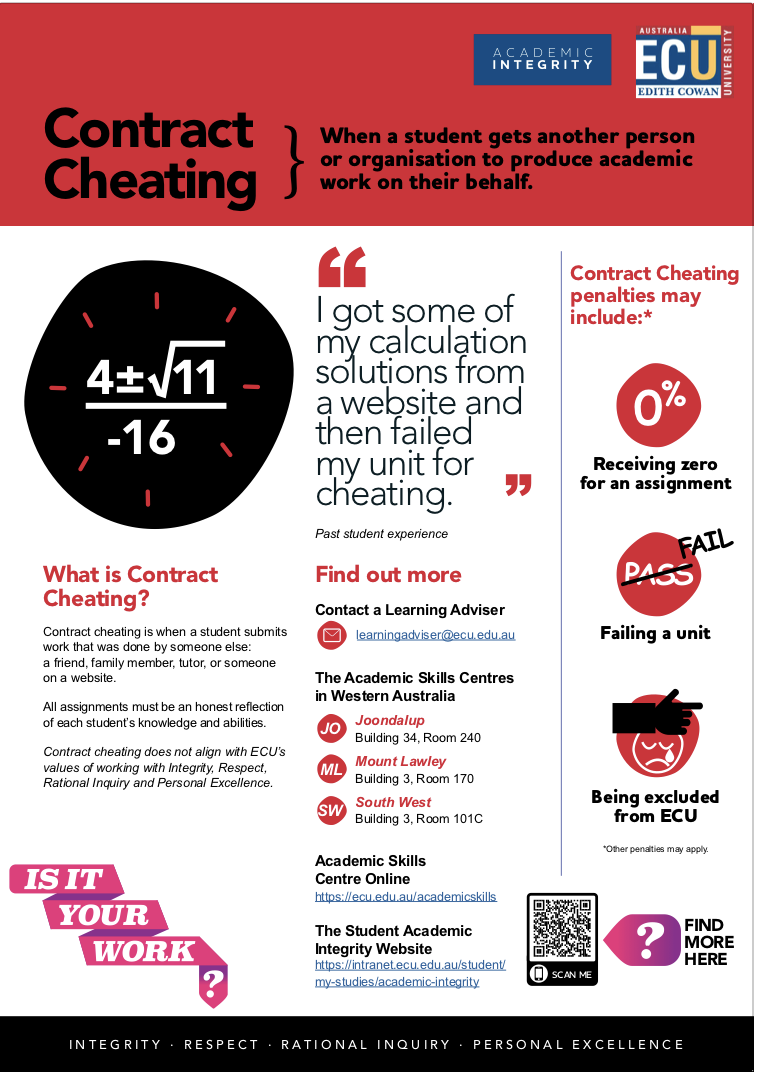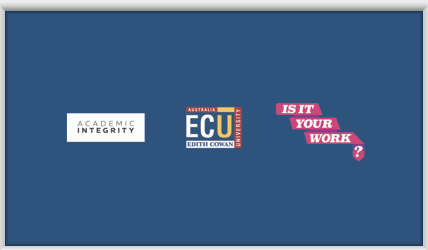Everyone has a role to play in developing a culture of academic integrity. As a member of staff at ECU you have a particular role and responsibility to:
- support a consistent, holistic approach; and
- be aware of, and follow the University Rules: Academic Misconduct Rules (Students) and the Academic Misconduct Procedures.
In practice this looks like (but not limited to):
- Providing opportunities to discuss with students the importance of acting with academic integrity.
- Assessment literacy coupled with quality assessment design
- Ensuring students understand the requirements and expectations of assessment tasks.
- Providing meaningful assessment feedback to support student learning.
- Being approachable when students seek your help or reassurance.
- Being a role model for academic integrity e.g. in-text and end-text reference your lecture and tutorial material.
The Staff Academic Integrity Module has more detail on what these roles and responsibilities look like. Completing the Module forms part of the PDC111 Introduction to Learning and Teaching at ECU course.
Ultimately academic misconduct undermines the integrity of the university’s academic awards and assessment processes, damages the university’s reputation, and reduces the effectiveness of a student’s time at the University.
